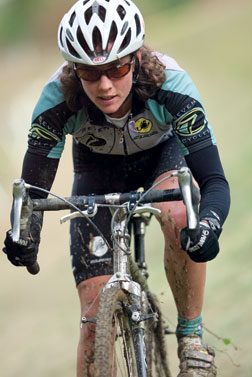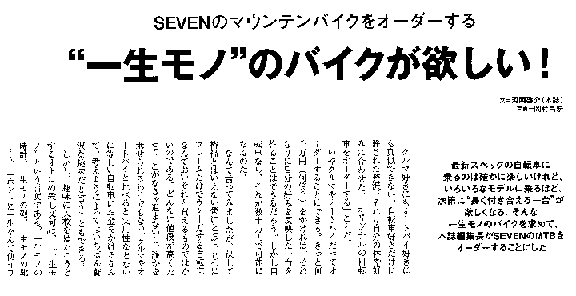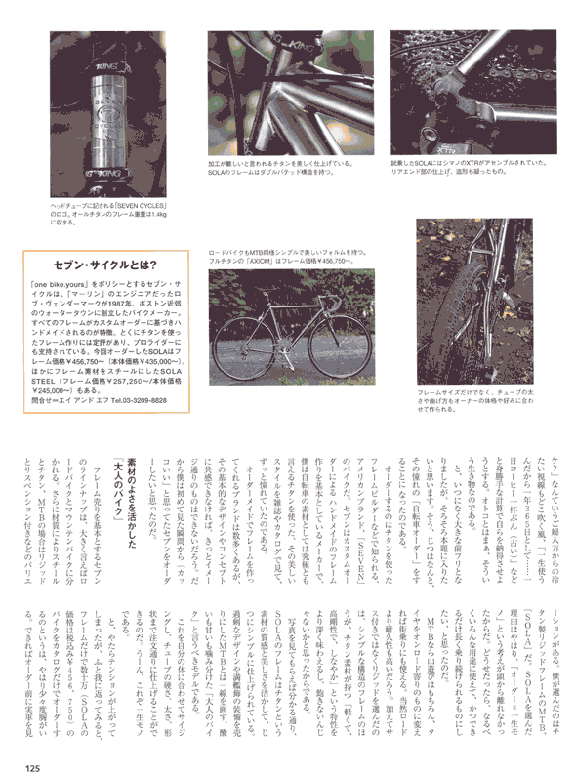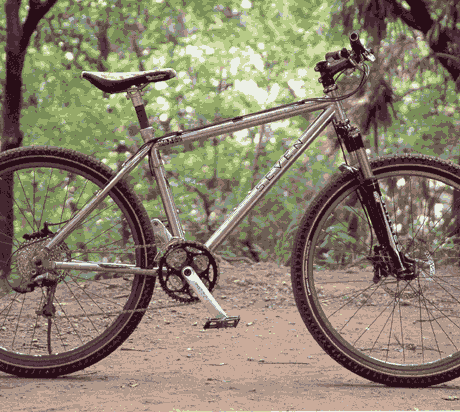The McTsunami
After a successful year of mountain biking that saw her earn the lone spot to represent the U.S. at the Athens Olympic Games, Mary McConneloug is currently tearing her way through the U.S Cyclocross season. And as nationals approach, and McConneloug’s fitness peaks, Steve Medcroft and Anthony Tan took a closer look at the bike she claims is her secret weapon: the Seven Tsunami.
McConneloug’s bikes are custom-made by Seven Cycles, who started building titanium frames in 1997. Currently based in Watertown, Mass, the company that was ostensibly a boutique Ti bike business has grown eight-fold since its inception and is now 32 employees strong, producing a range of frames for road, mountain, cyclocross, touring, triathlon, tandem and single speed disciplines.
Seven’s association with McConneloug began during the 2001 mountain bike season, where she took her first podium in a national-level cross-country race immediately after she received her first custom-built frame, and she says the manufacturer has earned her loyalty as an athlete since. “That was the beginning of my true career in the sport,” remembers McConneloug. On the fat-tyre circuit, she uses either Seven’s Sola hardtail or Duo-Lux models, depending on the course.
As for her cyclocross bike, “Mary’s running the Seven Tsunami,” says Mike Broderick, McConneloug’s partner and teammate. “She’s run this exact frame for the last three years. It’s super, super light, absolutely the most race-worthy bike out there. We really feel like we have a big advantage with these bikes because they’re just so responsive when you’re in and out of the saddle. They’re super comfortable. 100 percent race machines.”
The Tsunami frame is made entirely with Seven’s Argen tubing, a double butted, 3/2.5 seamless titanium. Each tube is available in rider-specific geometry, and frames smaller than 52cm—including McConneloug’s—use a semi-compact design with a sloping top tube.
“Ti is notoriously more forgiving,” says McConneloug, making it a perfect ‘cross bike material. “The bike is amazing in cyclocross—I go through the bumpy sections and it just absorbs a lot of the shock. And in the tight turns, it’s compliant and incredible to ride.”
Beyond the frame, Team Seven chose specialist Italian component manufacturer FRM for the brakes, bottom bracket, cranks and seatpost. “We hooked up with them through Stan at Notubes.com,” Broderick says. “He’s the exclusive U.S. importer of FRM. They’re some of the lightest, stiffest, most race-worthy components in the industry. The cyclocross brakes are especially cool—they utilize a spoke instead of cable from the hanger down to the brake post. It’s a unique design and makes the brake super rigid.”
For McConneloug, the choice to replace her Shimano setup with FRM came down to shaving a little extra precious weight off her bike. “We took almost a pound off my bike,” she says proudly.




